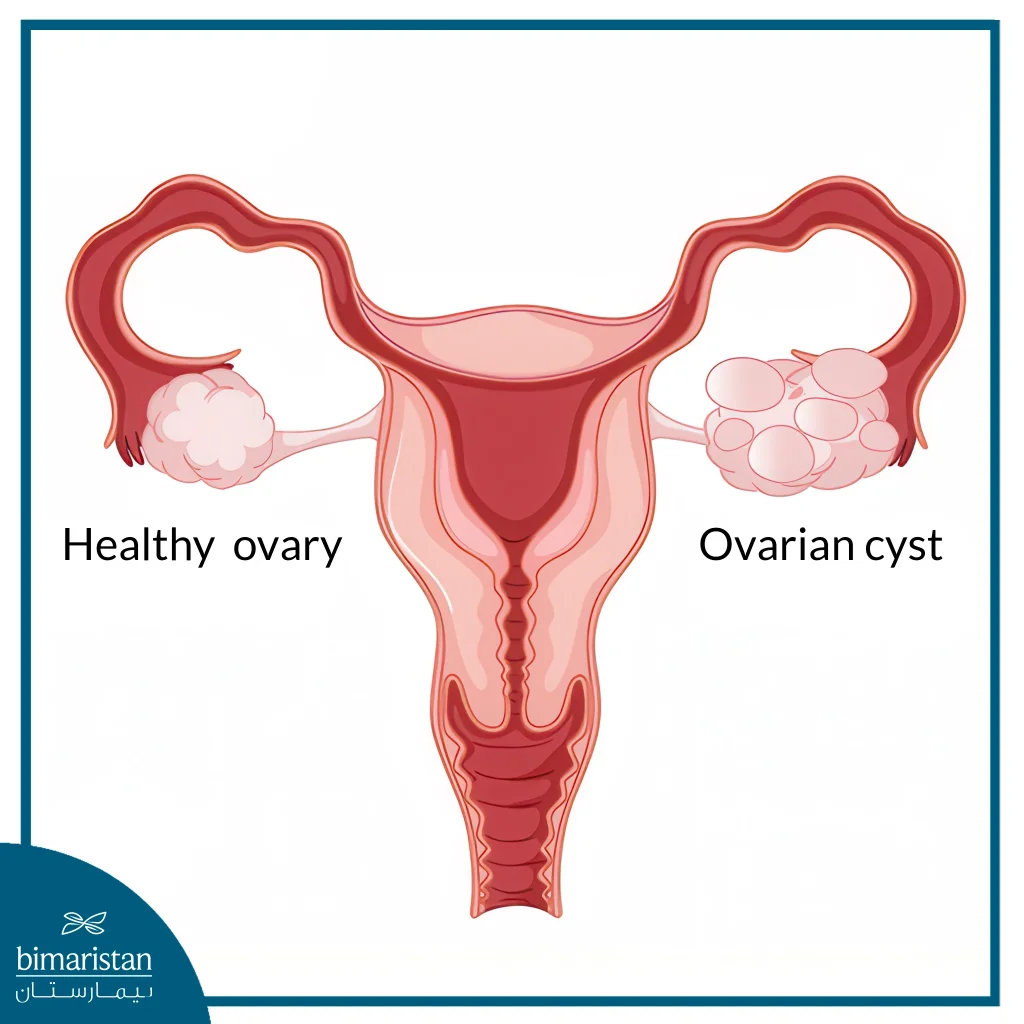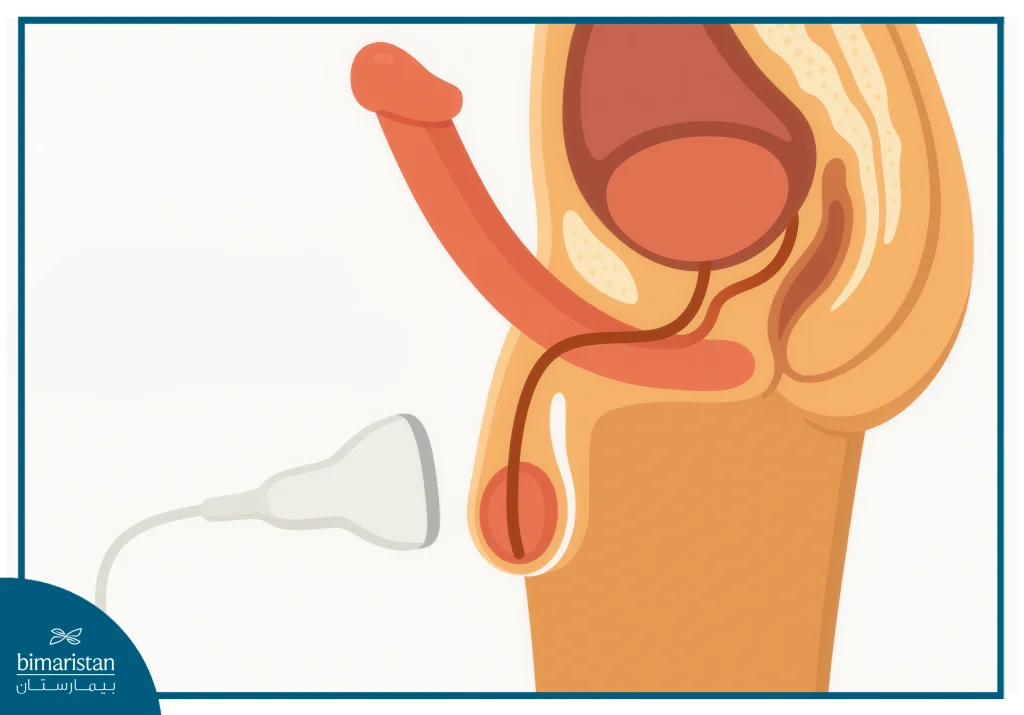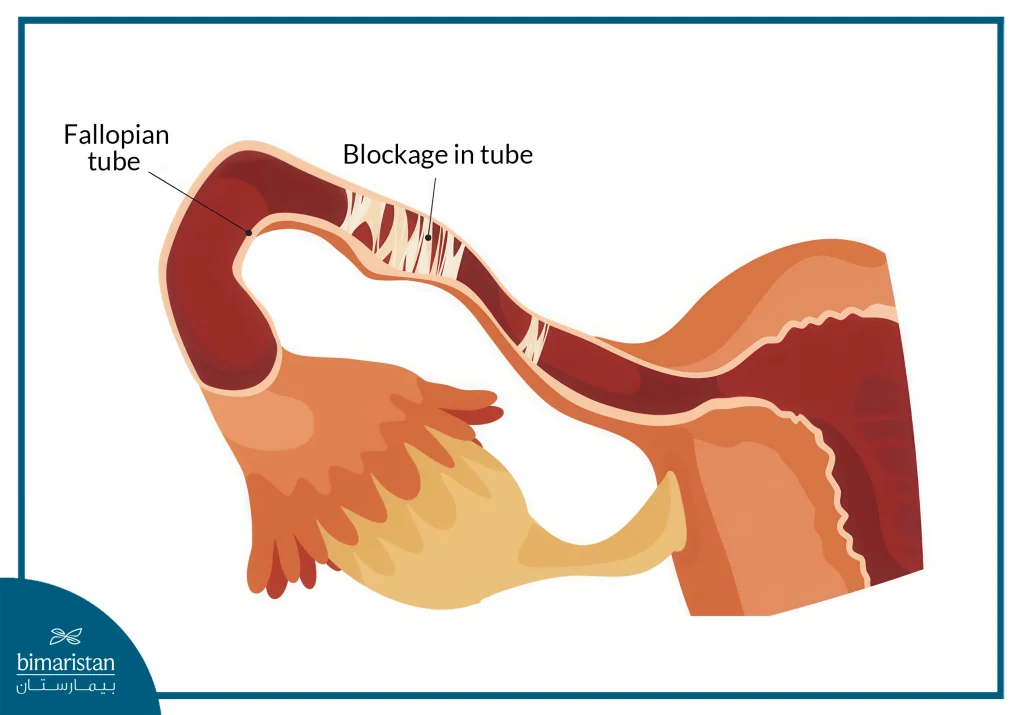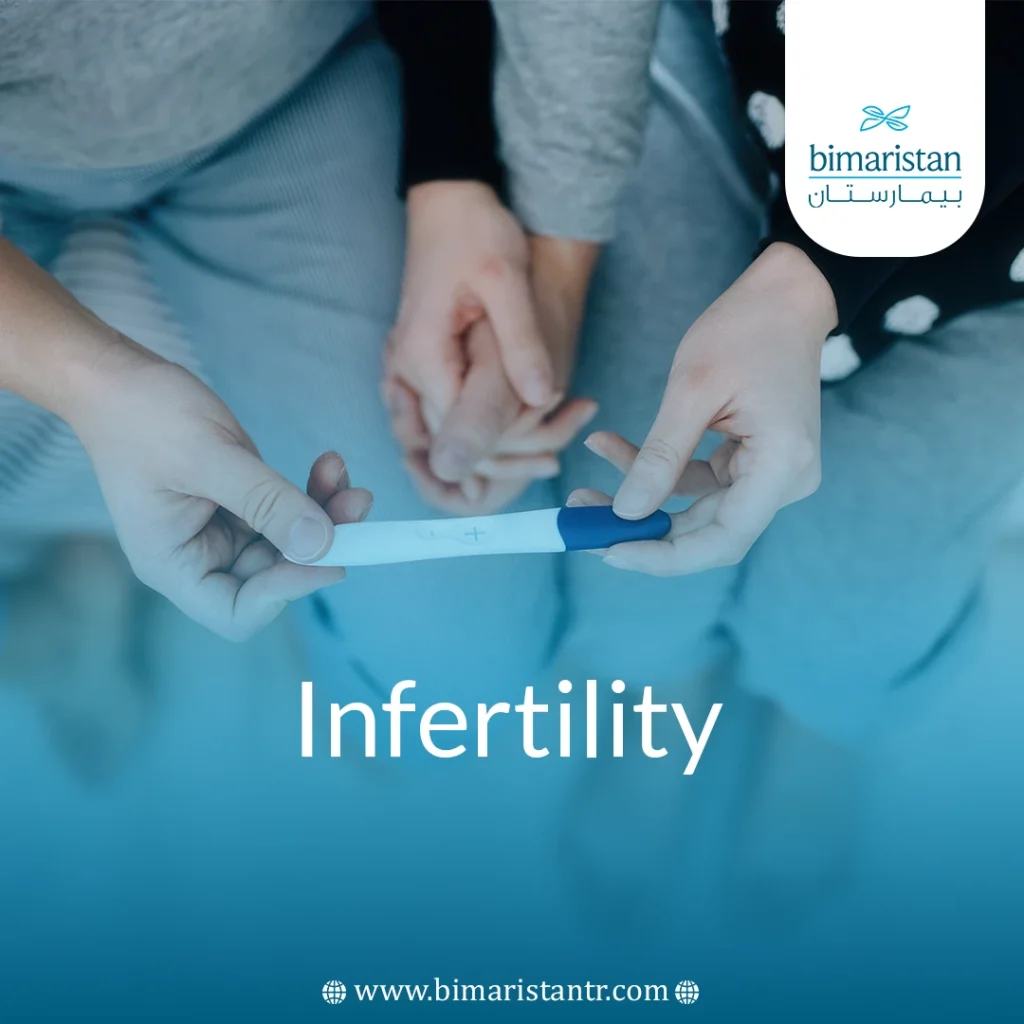Approximately one in seven couples experience difficulty conceiving. Infertility is defined as a disease affecting the male or female reproductive system, resulting in the inability to achieve pregnancy after 12 months or more of regular, unprotected sexual intercourse. Male factors, female factors, or unexplained reasons may cause infertility. Some causes of infertility are preventable. Treatment often involves in vitro fertilization (IVF) and other forms of medically assisted reproduction.
How Does Pregnancy Occur?
To understand infertility, its mechanisms, and causes, it is essential to delve into the process of pregnancy. Pregnancy results from a complex sequence of vital steps that must occur precisely and sequentially.
The journey of pregnancy begins with the release of an egg from one of the female’s ovaries, marking the start of the body’s preparation for pregnancy. Next, a sperm from the male must travel through the female reproductive system to meet the egg. Here, fertilization occurs as the sperm unites with the egg to form a new cell carrying genetic material from both parents — the fertilized egg.
After fertilization, the fertilized egg travels through the fallopian tube toward the uterus. This stage requires careful coordination among various organs to ensure the egg reaches its correct destination. When the fertilized egg arrives at the uterus, implantation takes place as it attaches to the inner lining of the uterus. This moment marks the beginning of a new life, as the embryo starts to grow and develop.
The process of pregnancy may face multiple challenges. Infertility can result from problems in any of these steps, and a woman may encounter factors that affect her ability to conceive or carry a pregnancy to term, leading to a condition known as impaired fertility, referring to women who struggle to achieve or maintain pregnancy.
Recurrent pregnancy loss is a painful and challenging experience, defined as the spontaneous occurrence of two or more miscarriages. In such cases, reproductive endocrinologists can provide support and assistance to women, offering hope to couples seeking to build their families.
What is infertility?
Infertility is a medical condition defined by the inability to conceive after one year of regular, unprotected sexual intercourse. This condition is considered a significant health issue that affects many couples worldwide. Infertility can have profound psychological and emotional effects, as couples often experience frustration and anxiety due to their inability to fulfill their dream of having children. This situation can lead to numerous problems and tension within the marital relationship.
The management of infertility requires a comprehensive evaluation of the couple, where doctors conduct the necessary tests to identify possible causes. Age is considered a significant factor in a woman’s fertility, as the ability to conceive decreases noticeably with advancing age. Couples facing difficulties in conceiving are advised to consult a physician for appropriate support and guidance.
Couples need to be aware of the available options, whether related to medical treatments or assisted reproductive techniques. This includes understanding the various possible treatments and the psychological support methods that can help relieve the emotional stress accompanying the journey toward pregnancy.
Types of Infertility
There are two main types of infertility:
- Primary infertility: Refers to a condition in which a person who has never conceived a child faces difficulty in achieving pregnancy.
- Secondary infertility: Involves cases where a person has previously experienced one or more pregnancies but is now facing difficulty conceiving again.
Understanding these types can help couples determine their next steps and communicate more effectively with their doctor to receive the best possible medical care.
When should couples trying to conceive visit a doctor?
A woman’s chances of conceiving decline significantly with each year after the age of 30. Couples without health or fertility issues, where the woman is under 35 and has regular menstrual cycles, are advised to try conceiving for a full year before considering a medical consultation.
For couples without health or fertility problems, where the woman is 35 or older with regular menstrual cycles, it is recommended to visit a healthcare provider after 6 months of trying to conceive naturally without success. Couples where the woman is 40 years or older should consider prompt evaluation and treatment.
Signs that require urgent medical attention
Couples who experience any of the following signs or symptoms should not hesitate to consult a doctor while trying to conceive.
Signs for women:
- Irregular or absent menstrual periods
- A history of endometriosis or severe menstrual pain
- A history of pelvic inflammatory disease
- Existing or suspected uterine or fallopian tube conditions
- A history of multiple miscarriages
- Genetic or acquired conditions affecting ovarian reserve
Signs for men:
- A history of testicular injury
- Previous hernia surgery
- Prior chemotherapy treatment
- A history of infertility with another partner
- Sexual dysfunction
The doctor will collect a comprehensive medical and sexual history from both partners. Initial evaluations may include appropriate tests based on the couple’s specific circumstances, such as semen analysis, fallopian tube assessment, and ovarian reserve testing.
Couples need to be aware of their options and seek appropriate medical support to ensure a healthy and successful conception journey.
What Are the Causes of Infertility?
Infertility is a complex issue that can result from a variety of factors affecting the reproductive system in both men and women. These causes may be present from birth or develop over time, and in some cases, it can be difficult to identify the exact reason.
Causes of Infertility in Women
- Ovulation Disorders: Ovulation disorders are among the most common causes of infertility in women. These include hormonal problems such as polycystic ovary syndrome (PCOS), elevated prolactin levels, and thyroid dysfunction, whether hyperthyroidism or hypothyroidism.
- Uterine Problems: Conditions like fibroids, uterine polyps, and abnormalities in the shape of the uterus or cervix can negatively affect fertility. Fibroids, in particular, may block the fallopian tubes, preventing the egg and sperm from meeting.
- Blocked Fallopian Tubes: Blockages may occur due to infections such as pelvic inflammatory disease (PID) or complications from unsafe abortions, obstructing the process of conception.
- Endometriosis: This condition involves the growth of tissue similar to the uterine lining in abnormal locations outside the uterus, affecting the function of the ovaries and uterus.
- Primary Ovarian Insufficiency: This occurs when the ovaries stop functioning normally before age 40, often for unknown reasons.
- Pelvic Adhesions: These scar tissues form due to infection or previous surgery in the abdomen or pelvis, potentially affecting fertility.

Causes of Infertility in Men
- Problems in Sperm Production: These include testicular failure to produce sperm, which may result from conditions like varicocele or the effects of chemotherapy.
- Hormonal Imbalances: Disorders affecting hormones, especially those produced by the pituitary gland and testicles, such as low testosterone levels, can impact fertility.
- Blockages in the Reproductive Tract: Obstructions in the tubes that carry semen can cause problems with ejaculation and affect the ability to conceive.
- Sperm Quality Issues: Conditions that lead to abnormal sperm shape and impaired motility may reduce fertility. For example, the use of anabolic steroids can alter the consistency and parameters of semen.
- Environmental Factors: Exposure to pollutants and toxins, such as pesticides, can directly impact sperm quality.
Lifestyle factors in both genders can influence fertility, including smoking, excessive alcohol consumption, obesity, and excessive exercise. Environmental exposure to toxic chemicals may also harm eggs and sperm, reducing their quantity and quality.
Diagnosis and Tests for Detecting Infertility
How Is Infertility Diagnosed in Women?
Infertility diagnosis begins with a complete medical and sexual history. Female fertility relies on the ovaries to produce healthy eggs, which involves hormonal signals sent from the brain to the ovaries. Fertility tests aim to detect any issues in these processes:
- Pelvic Exam: The doctor performs a pelvic exam to check for structural problems or signs of certain diseases.
- Blood Tests: Blood tests are used to check hormone levels, such as progesterone, to confirm ovulation. If menstrual cycles are irregular, gonadotropin hormone levels are measured.
- Transvaginal Ultrasound: A transducer is inserted into the vagina to look for problems in the reproductive system.
- Hysteroscopy: A thin, lighted tube (hysteroscope) is inserted to examine the uterus.
- Saline Infusion Sonogram (SIS): The uterus is filled with saline, and a transvaginal ultrasound is performed.
- Sonohysterogram of the Uterus and Fallopian Tubes: The fallopian tubes are filled with saline and air bubbles to check for blockages.
- Hysterosalpingography (HSG): X-rays are used to detect blockages after a dye is injected into the uterus and fallopian tubes.
- Laparoscopy: A laparoscope is inserted through a small incision in the abdomen to diagnose and treat conditions such as endometriosis and fibroids.
How Is Infertility Diagnosed in Men?
Diagnosing male infertility involves ensuring that healthy sperm are ejaculated, with most tests focusing on sperm-related issues:
- Semen Analysis: Examines the number and movement of sperm. Some individuals may need a needle biopsy to retrieve sperm directly from the testicles.
- Blood Tests: These are used to check thyroid hormone levels and other conditions, along with genetic blood tests to detect chromosomal abnormalities.
- Scrotal Ultrasound: Identifies the presence of varicoceles or other problems in the testicles.

How is Infertility Treated?
Infertility treatment depends on a variety of factors carefully evaluated by a specialist, including:
- The couple’s age
- General health status and medical history
- The body’s tolerance for medications and medical procedures
- The duration of the problem
- The couple’s wishes and preferences
After conducting thorough examinations and making an appropriate diagnosis, a treatment plan is created in collaboration with a fertility specialist, tailored to the nature and specifics of the case. Depending on the type and cause of infertility, available treatment options include medication, surgical intervention, and assisted reproductive technologies (ART).
Treatment of Infertility in Women
Intrauterine Insemination (IUI)
A simple procedure where a thin tube (catheter) is inserted through the cervix to inject a carefully selected semen sample into the uterus. It is used in cases of:
- Low sperm count or weak motility
- Problems with cervical secretions
- Ovulation-stimulating medications often accompany this procedure
Ovulation-Stimulating Medications
These medications are used to regulate ovulation and stimulate the ovaries to produce mature eggs, while helping to maintain the hormonal balance needed to support the uterine lining. Common medications include:
- Clomiphene citrate
- Gonadotropins (FSH and LH)
- FSH (Follicle Stimulating Hormone)
It is important to note that these medications may stimulate the release of more than one egg, increasing the likelihood of multiple pregnancies.
Surgery
Surgical intervention is used to treat specific physical causes of infertility, such as blocked fallopian tubes or endometriosis. This is often performed using laparoscopy, a precise surgical technique that allows the doctor to view and treat internal reproductive organs through small incisions in the abdomen.

Assisted Reproductive Technologies (ART)
Many advanced cases turn to assisted reproductive techniques where the egg is fertilized by sperm outside the body, and the resulting embryo is transferred to the uterus.
The main techniques include:
Eggs are retrieved from the ovaries, fertilized in a laboratory, and embryos are returned to the uterus.
This method is used for:
- Blocked or damaged fallopian tubes
- Endometriosis
- Male infertility
- Unexplained infertility
- Intracytoplasmic Sperm Injection (ICSI): A single sperm is injected into a mature egg under a microscope. It is often used to treat male infertility.
- Gamete Intrafallopian Transfer (GIFT): Sperm and eggs are transferred into the fallopian tubes using laparoscopy. This is only applicable if the fallopian tubes are healthy.
- Zygote Intrafallopian Transfer (ZIFT): Eggs are fertilized in the lab, and then the resulting zygotes are transferred to the fallopian tubes, requiring healthy tubes as well.
- Egg Donation: Fertilized embryos from donated eggs are transferred to a woman’s uterus. This method is standard in older women as the success rate is linked to the donor’s age.
- Embryo Freezing: Surplus embryos are frozen for use in future treatment cycles, especially when the number produced exceeds what can be transferred in a single cycle.
Treatment of Infertility in Men
Assisted Reproductive Technologies (ART)
This includes:
Artificial Insemination:
- A concentrated sample of healthy sperm is placed either in the cervix or directly into the uterine cavity.
- In Vitro Fertilization and Similar Techniques: Laboratory procedures are performed to improve the quality and motility of sperm before fertilizing the eggs.
- Intracytoplasmic Sperm Injection (ICSI): Primarily used to treat infertility caused by weak or low sperm count.
Medication
Used to treat hormonal imbalances affecting sperm production caused by disorders of the:
- Hypothalamus
- Pituitary gland
- Testicles
Treatments may include:
- Gonadotropins
- Antibiotics for infections
- Other medications, depending on the specific diagnosis
Surgery
Surgical intervention addresses anatomical abnormalities that obstruct sperm production, movement, or ejaculation.
The most notable procedure is varicocele repair, which aims to improve sperm quality and enhance fertility.
Enhancing the Chances of Pregnancy
While infertility may, in some cases, be beyond an individual’s or couple’s control, adopting a range of healthy lifestyle habits can significantly increase the chances of conception and improve fertility in both men and women. Below is a set of trusted, evidence-based medical recommendations that are highly encouraged for those hoping to conceive:
Enhancing Pregnancy Chances for Couples
To optimize the chances of a natural pregnancy, it is generally recommended for couples to engage in regular sexual intercourse following the end of the menstrual period. Ovulation typically occurs around the midpoint of a woman’s menstrual cycle, approximately 14 days after the start of a 28-day cycle in women with regular periods.
For the best chance of conception, it is advisable to begin having intercourse daily starting about 5 to 7 days before the expected ovulation date and continue up to two days after ovulation. This timing ensures that a sufficient number of healthy, motile sperm are present in the reproductive tract, ready to fertilize the egg immediately after it is released from the ovary.
Enhancing Pregnancy Chances for Individuals
Maintaining and supporting fertility health is crucial for individuals planning to conceive in the near or distant future. Following specific health recommendations can help preserve fertility potential and improve the chances of a successful pregnancy:
- Maintaining a well-balanced, nutrient-rich diet and achieving a healthy weight appropriate for one’s body type and lifestyle can positively influence hormonal balance and reproductive function.
- Completely avoiding smoking, drug use, and excessive alcohol consumption is strongly recommended, as these habits are known to have a direct and negative impact on reproductive health in both men and women.
- Prompt diagnosis and treatment of sexually transmitted infections (STIs) are essential, as untreated infections may lead to complications that can impair fertility and overall reproductive system health.
- Minimizing exposure to environmental pollutants, toxins, and harmful chemicals, such as industrial materials, pesticides, and heavy metals, can also help maintain reproductive health and prevent fertility issues.
Infertility remains a complex medical condition that requires a careful, well-informed understanding of the possible causes and contributing factors affecting both partners. With significant advances in diagnostic tools and fertility treatments, including assisted reproductive technologies and in vitro fertilization (IVF), the chances of a successful pregnancy have improved remarkably in recent years. However, early diagnosis, timely intervention, and an individualized, science-based approach tailored to the couple’s unique circumstances remain critical factors in achieving positive outcomes.
Continuous scientific research in the field of reproductive medicine holds promise for the future, offering the prospect of developing safer, more effective solutions for a wide range of patients struggling with infertility, providing them with renewed hope for starting or growing a family.
Sources:
